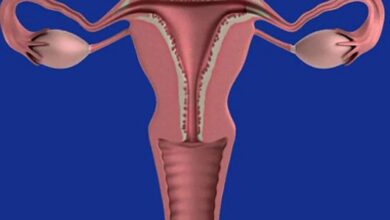Type 1 diabetes vs Type 2 diabetes Similarities and FAQs
Type 1 diabetes vs Type 2 diabetes
In this article we will provide you the information about the Type 1 diabetes vs Type 2 diabetes Similarities and FAQs.
What does type 1 diabetes mean?
Type 1 diabetes, once known as juvenile diabetes or insulin-dependent diabetes, is a chronic condition. In this condition, the pancreas makes little or no insulin. Insulin is a hormone the body uses to allow sugar (glucose) to enter cells to produce energy.
Different factors, such as genetics and some viruses, may cause type 1 diabetes. Although type 1 diabetes usually appears during childhood or adolescence, it can develop in adults.
Even after a lot of research, type 1 diabetes has no cure. Treatment is directed toward managing the amount of sugar in the blood using insulin, diet and lifestyle to prevent complications.
Symptoms of 1 diabetes
Type 1 diabetes symptoms can appear suddenly and may include:
- Feeling more thirsty than usual
- Urinating a lot
- Bed-wetting in children who have never wet the bed during the night
- Feeling very hungry
- Losing weight without trying
- Feeling irritable or having other mood changes
- Feeling tired and weak
- Having blurry vision
What does type 2 diabetes mean?
Type 2 diabetes is a chronic disease characterized by a high level of glucose in the blood. This occurs because the body does not produce enough insulin, or because the insulin produced does not work properly. The most common symptoms are excessive thirst, increased appetite, extreme tiredness, and frequent urination. Treatment for this condition includes lifestyle changes (healthy diet and exercise), oral medications to regulate glucose levels, and, if necessary, daily insulin injections. Type 2 diabetes can be prevented by maintaining a healthy weight, avoiding risk factors such as obesity or other diet-related problems.
Similarities
Both type 1 diabetes and type 2 diabetesThey are chronic diseases that affect the metabolism of carbohydrates, proteins and fats. This condition occurs when there is a problem with the body’s production or use of insulin. The main difference between the two is that type 1 diabetes develops due to autoimmune destruction of insulin-producing cells while in type 2 diabetes there are problems in effectively using this hormone. In both cases, excessive blood sugar can cause serious complications such as heart attacks, kidney damage, peripheral neuropathy and even diabetic coma if not treated properly. It is important to properly control glucose levels to prevent these negative consequences for both those with type 1 diabetes and those with type 2 diabetes.
Differences
Type 1 diabetes is a chronic autoimmune disease in which the body’s immune system destroys the beta cells of the pancreas, preventing them from producing insulin. This condition requires daily treatments with insulin injections to maintain normal glucose levels. On the other hand, type 2 diabetes , although also characterized by high blood glucose levels, is not linked to an autoimmune problem and can be controlled through a healthy diet and regular exercise. In some cases, oral medications are necessary to help regulate blood glucose levels; However, it is not necessary to resort to daily injections as those with type 1 diabetes do.
Frequent questions
What is type 1 diabetes?
Type 1 diabetes is a chronic disease that occurs when the body does not produce enough insulin. Insulin is a hormone necessary to control glucose (sugar) levels in the blood. When there is little insulin, blood glucose levels rise and this can lead to serious long-term health problems.
What is the difference between type 1 and 2 diabetes?
Type 1 diabetes is a chronic autoimmune disease in which the body does not produce insulin. This means that patients with type 1 diabetes must take insulin injections regularly to maintain appropriate blood glucose levels. Type 2 diabetes, on the other hand, develops when the body no longer properly uses the insulin it produces. Patients with this form of diabetes may have insulin resistance and/or relative insulin deficiency. In general, treatments for type 2 diabetes usually include healthy diets and physical exercise along with oral medications or insulin injections.
How serious is type 1 diabetes?
Type 1 diabetes is a serious disease that requires control of glucose levels to avoid long-term complications. Most people with type 1 diabetes need insulin daily to keep their levels low and prevent problems such as blindness, kidney or heart damage, foot ulcers, and even amputation due to poor blood circulation.
How long can a person with type 1 diabetes live?
The length of life of a person with type 1 diabetes depends largely on lifestyle, treatment, and genetic factors. According to the American Diabetes Association, people with type 1 diabetes can have similar expectations as people without diabetes if they properly control their blood glucose levels and follow a healthy eating plan and regular physical activity.
What is type 2 diabetes?
Type 2 diabetes is a chronic condition in which the body cannot properly regulate blood glucose (sugar) levels. This happens because the body does not produce or properly use insulin, which is a hormone that helps convert glucose into energy. Symptoms of type 2 diabetes include excessive thirst, frequent urination, and extreme fatigue; However, some people with type 2 diabetes may have no symptoms.
What is the difference between type 1 diabetes and type 2 diabetes?
Type 1 diabetes is an autoimmune disease in which the body’s immune system attacks insulin-producing cells. This prevents the body from producing enough insulin to control blood glucose levels. On the other hand, type 2 diabetes occurs when the body does not produce enough insulin or when the body’s cells do not react properly to this hormone. In this case, blood glucose levels become too high and can cause serious problems if not treated correctly.
What are the causes of type 2 diabetes?
The main causes of type 2 diabetes are poor diet, being overweight and lack of exercise. Other factors that may contribute to type 2 diabetes include family history, older age, insulin resistance or prediabetes, chronic diseases (such as high blood pressure), and certain medications.




